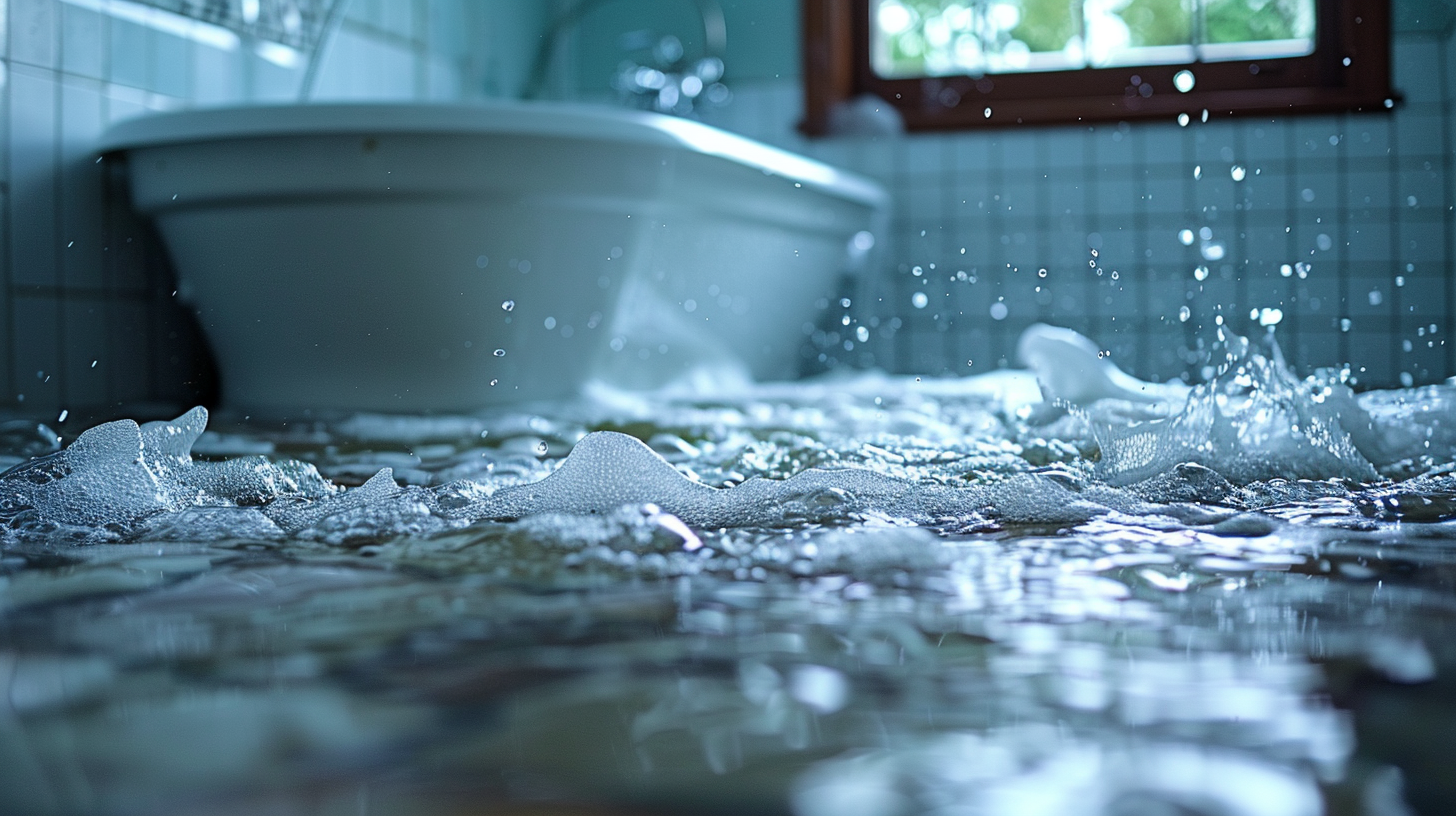Key points
Contents
- 1 Key points
- 2 Understanding Sewer Odor
- 3 Common Misconceptions About Home Odors
- 4 Why It’s Bad to Ignore Sewer Smells
- 5 Influence of External Factors
- 6 Understanding Sewer Odors in Your Home
- 7 Health Implications
- 8 Diagnostics and Recognition Methods
- 9 Dry P-Traps and S-Traps
- 10 Blocked or Damaged Vent Pipes
- 11 Sewer Line Breaks or Leaks
- 12 Problems with Septic Systems
- 13 Dealing With Clogs and Blockages
- 14 Fixing Water Traps
- 15 Fixing or Changing Toilet Seals
- 16 Facing Issues with Air Flow
- 17 Understanding Sewer Odors in Your Home
- 18 Frequently Asked Questions (FAQ)
• Sewer Gas Leakage: If your home reeks of sewage, it might be because there’s a hole or crack in your sewer line. Or perhaps, your drain system has a dry trap. These issues can let stinky sewer gases slip into your place – and they aren’t just nasty, they could be bad for you.
• Clogs or Blockages: When stuff like hair and grease pile up in your pipes, it can jam them up. If this blockage gets bad enough, it’ll send that foul sewer smell right back through the pipes and into your home.
• Ventilation Issues: You need good airflow to keep those stinky smells away. If something’s wrong with your vent pipes – like they’re clogged, busted, or not put in right – they won’t be able to balance the pressure or clear out the smells. That means your house could end up smelling like sewage.
Understanding Sewer Odor

Sewer smell is really just a bunch of gases that come from organic stuff breaking down in sewage. It usually includes hydrogen sulfide and ammonia among others, which give off that gross rotten egg or tangy stink we all know as sewer gas. If there’s too much of it, it’s not just yucky – it can be bad for your health, too.
Common Misconceptions About Home Odors
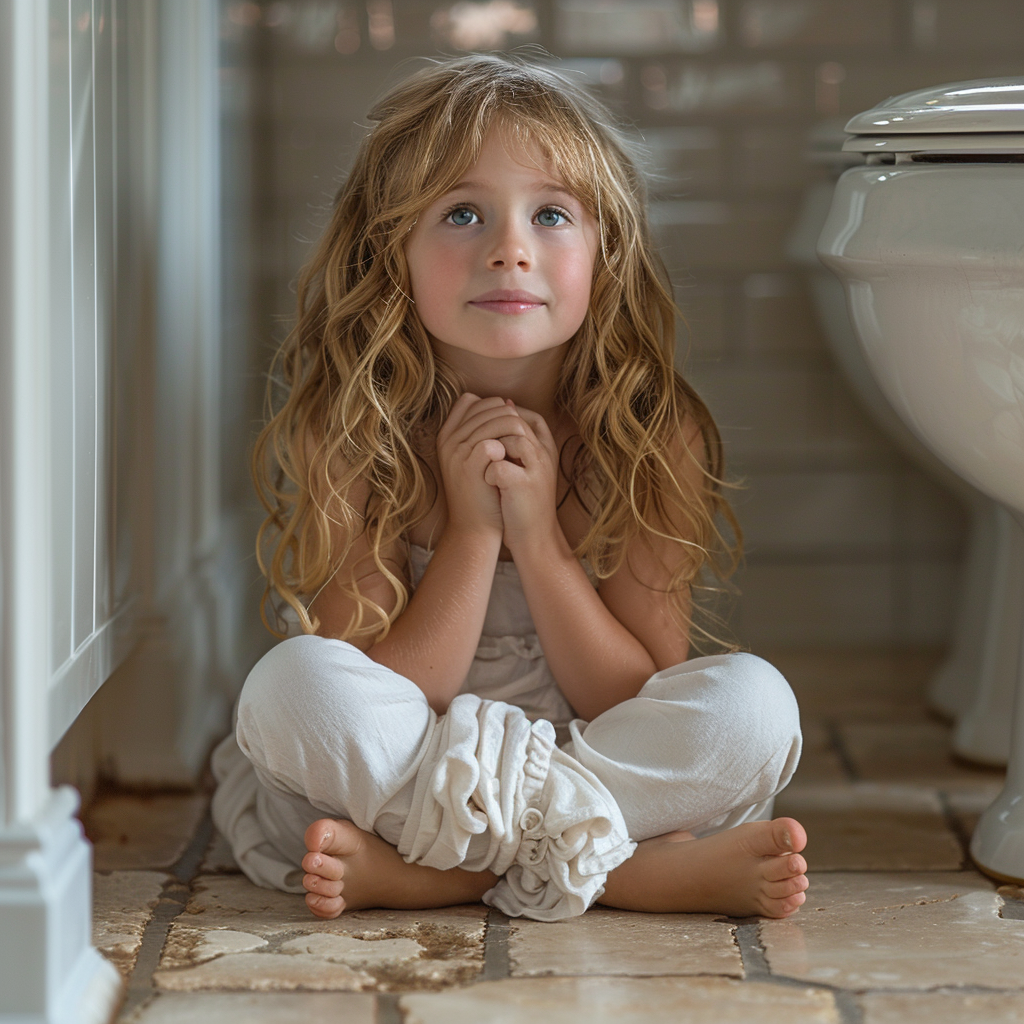
Often, folks think stinky smells at home come from sewer trouble. But other things like leftover food, mold, pets, or some furniture might smell just as bad. It’s key to find out why something reeks before you try fixing it, so you don’t miss a different issue that has nothing to do with the sewers.
Why It’s Bad to Ignore Sewer Smells
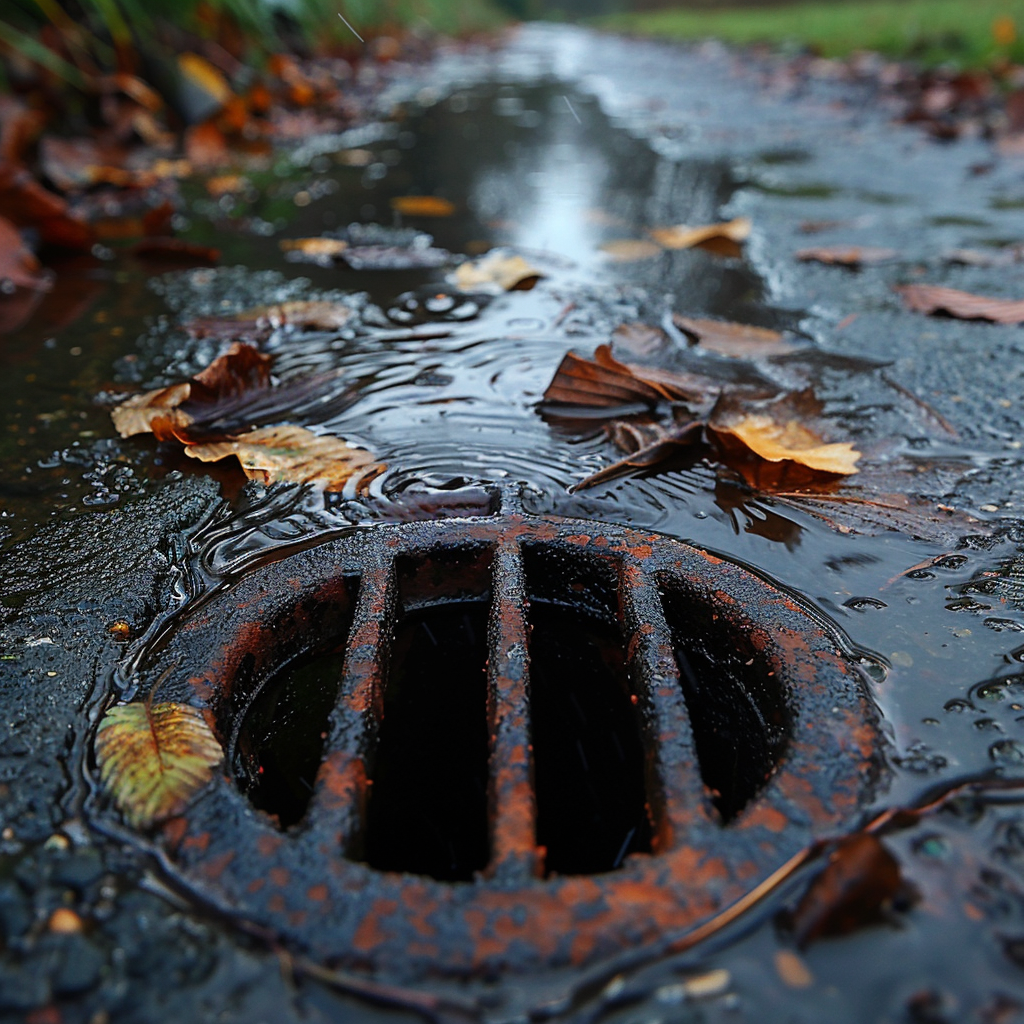
You shouldn’t ignore sewer smells because they can harm your house in several ways. Not only are they unpleasant, but they can worsen the air quality inside and be a health threat, particularly for people with lung issues. The smells might also mean your sewer system is damaged, which could lead to expensive fixes down the line.
To figure out where the bad sewer smells are coming from you need to do some investigating. There might be several spots causing the stink, and finding them is your ticket to a fresher home.
Drain Traps and Water Seals
Drain traps play a big part in keeping away sewer gases. These U-curves under your sink and the floor hold water, which stops gases from coming up. If the water dries up, like in unused sinks, smells can creep into your house. To prevent this, just run water down these drains from time to time.
Venting Systems
A venting system is supposed to let sewer gases escape through the roof, not inside your home. If they’re clogged or set up wrong, you’ll get bad odors indoors. For problems like this, you’ll probably need someone who knows what they’re doing to take a look.
Sewer Line Problems
Iff your sewer lines are cracked it can make your house smell. You might also notice that drains aren’t working right or sewage is backing up – signs you might need an expert to fix or replace parts of your sewer system.
Toilet Seals and Wax Rings
A faulty seal or wax ring on your toilet can let sewer smells leak into your bathroom. The ring keeps the space between the toilet and plumbing gas-tight, but when it’s worn out or not fitted correctly, you’ll have problems. Fixing this isn’t super hard for DIY-ers, but sometimes you may want to call in a plumber.
Bad smells often come from bacteria and chemical reactions inside your pipes. Tiny bugs that love stuff that can rot in your drain produce smelly gas as they eat. Also, if your cleaning products mix together in the wrong way, you’ll get nasty odors too.
Bacterial Growth and Activity
Bacteria are tiny creatures that like wet places with plenty to eat. They love to live in your pipes, munching on sewage and waste. As they eat, they make smelly gas like hydrogen sulfide and ammonia – that classic sewer stink. Blockages make this worse since there’s more food for the bacteria.
Chemical Reactions in Plumbing
Your plumbing sees all sorts of chemicals reacting with each other. Sometimes when cleaners like bleach mix up in the drain, they produce harsh gases. Plus, if there’s lots of sulfur in your water, it can react with metals or other bacteria in your pipes to create that rotten egg smell.
Influence of External Factors
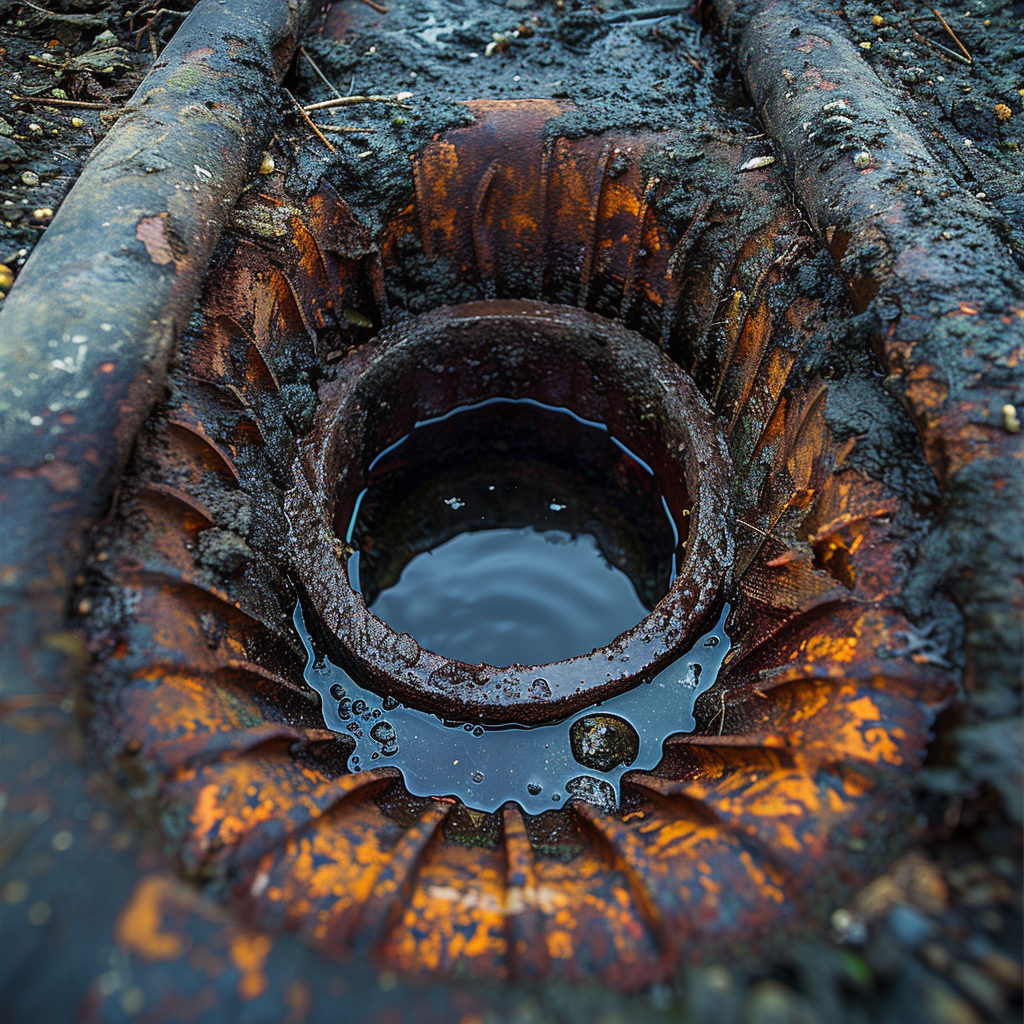
Not only do things inside the pipes matter but what’s happening outside, like the weather and temperature, affects them too. When it’s hot out, pipes might swell up. This could let loose any trapped gas right back into your house. If it’s cold, pipes may shrink and get cracks, which can let stinky sewer gases slip out. Also, if the air pressure outside is strong, it can push those gases out through the vents. But if there’s not much pressure, those same gases could get pulled in through any sinks or drains that don’t have good water seals.
Understanding Sewer Odors in Your Home
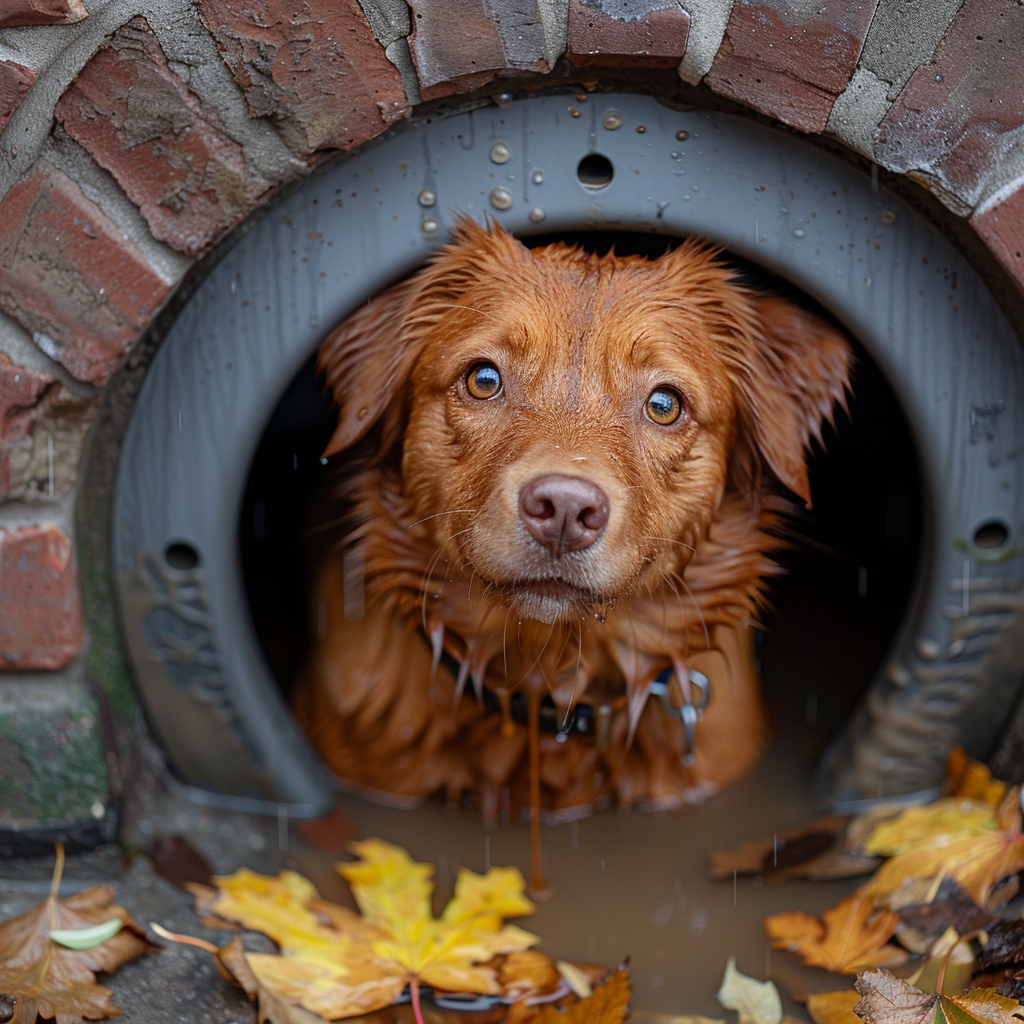
If you’re noticing bad smells drifting around your house, It might signal a problem with your sewage setup. Things like dried up traps, blockages, or busted sewer pipes can cause these stinky odors. It’s key to deal with these odors quick – they’re not just a nuisance, but they could be bad for your health too.
Health Implications

Inhaling sewer gases isn’t just unpleasant; it can harm your health. These gases often have ammonia, methane, and hydrogen sulfide which, at high levels, could be dangerous. The risk to your health generally depends on how long and how much gas you’re exposed to.
Short-term Exposure Effects
Coming into contact with sewer gas for a short time might give you headaches, make you feel dizzy, or cause nausea. It’s similar to feeling sick, but usually gets better when the exposure stops and you breathe in clean air.
Long-term Exposure Risks
Being exposed for a long time brings bigger risks. You could end up with serious issues like memory loss or lung problems. Continuous exposure to these gases can really mess with your health in the long run.
Vulnerable Populations
Kids, seniors, and people with ongoing lung diseases are more at risk from sewer gases. Even a small amount of gas can cause or worsen health problems for these folks.
If you can smell sewage in your place, don’t ignore it. It’s more than just an annoyance—it could be bad for your health if you don’t fix it fast specially if you’re often around it or if you’re already vulnerable. Tackling this issue right away is key to keeping your home safe and comfy.
Diagnostics and Recognition Methods
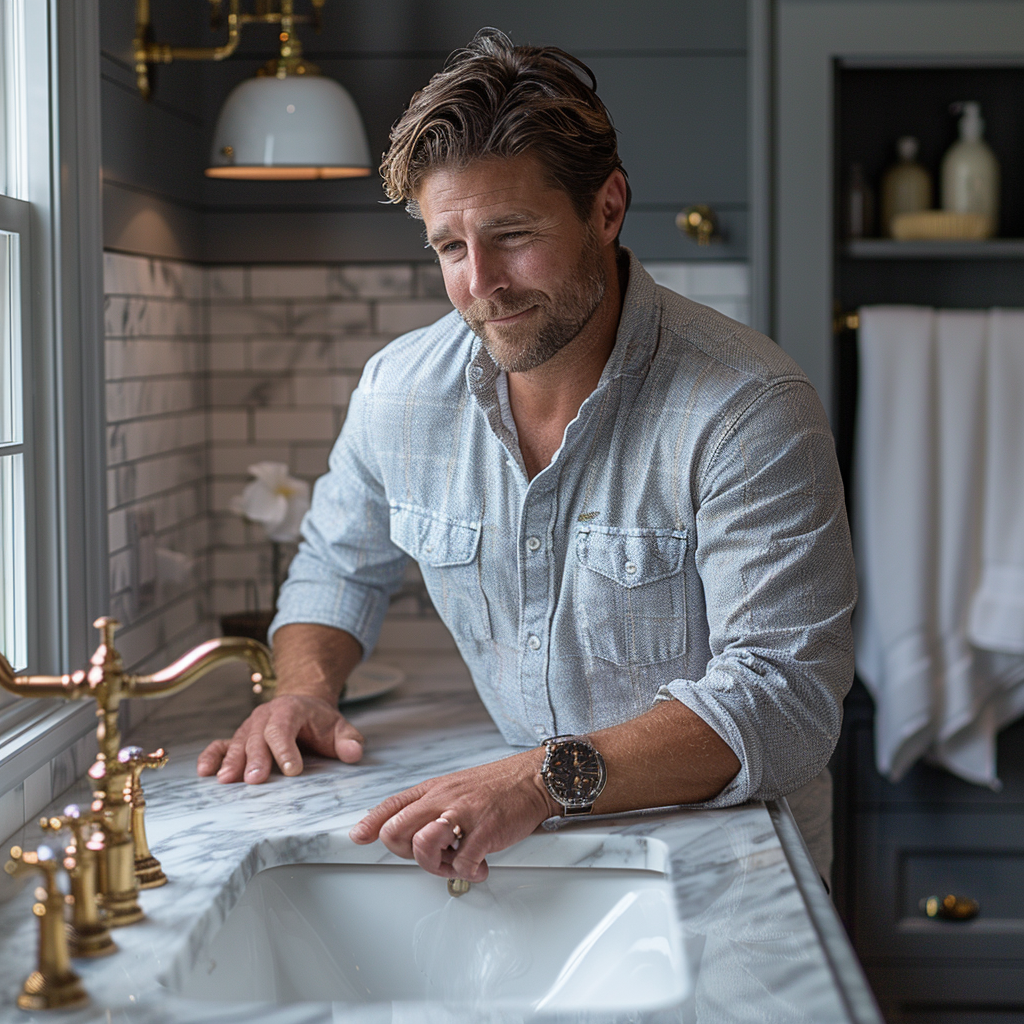
Figuring out why your house smells like a sewer requires using several ways to find the issue. Experts start by applying various techniques to pinpoint the exact problem.
Sniff Tests and Visual Evaluations
To start off, plumbers do simple sniff tests in different areas of your home. These tests help locate where exactly the stench is coming from, like toilets or drains. They also look around. Any leaks, cracks, or water damage they see might point to sewer gas escaping.
Smoke Tests for Airflow Checking
Another good technique is smoke testing. This test can show if there’s anything wrong with how your house gets rid of gases. Specialists pump harmless smoke into the pipes and watch where it goes. Wherever the smoke comes out, there could be a venting problem. This method isn’t just effective—it also shows clearly what’s going wrong.
Qualified Plumber Evaluations
At the end of the day, you need a pro plumber to take a look. They come with tools and know-how to check your whole sewage system. They’ll check pressure, seals, and connections – stuff that normal checks might miss. This makes sure they understand all potential problems.
All these steps together make a solid plan to find and fix any bad smells from sewers, keeping your home comfy.
Dry P-Traps and S-Traps
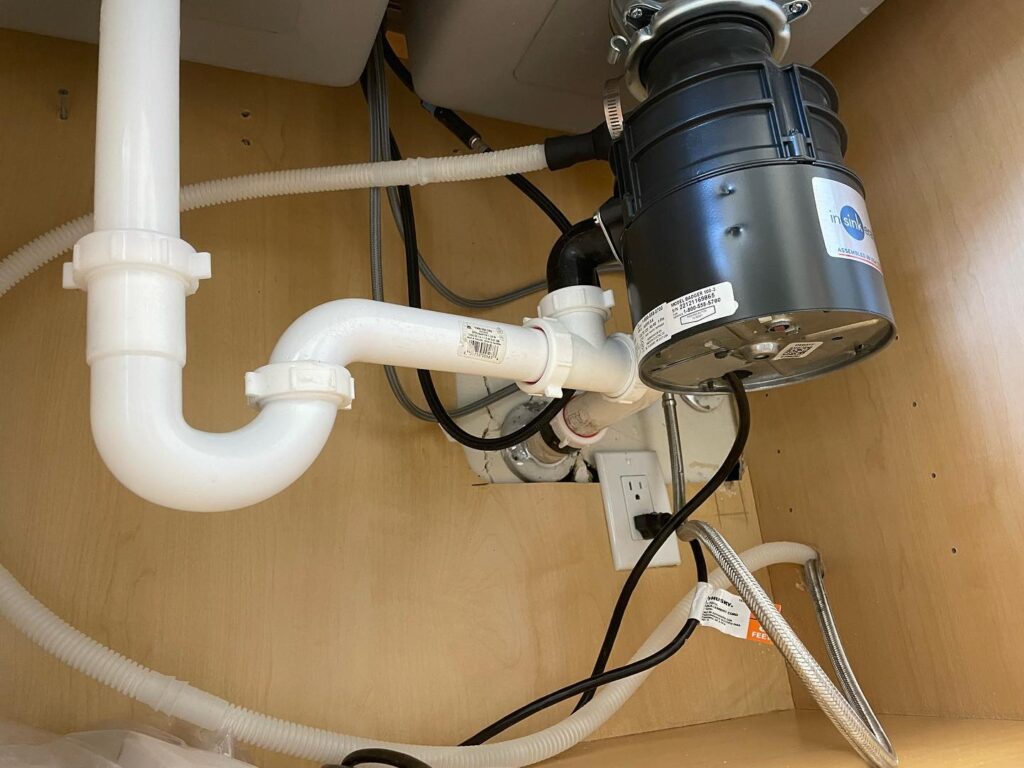
Is there a bad odor floating around your house? It could be because your P-traps or S-traps are dry. These traps are supposed to keep a bit of water to stop sewer gases from coming into your place. But if you don’t use your sink, shower, or tub often, the water might dry up. That means the seal’s broken. To sort this out just pour some water down the drain; that should do the trick.
Blocked or Damaged Vent Pipes
Vent pipes are super important for your plumbing because they let sewer gases get out without stinking up your house. If they’re clogged, busted, or put in wrong, you’re gonna end up with those nasty smells back inside. Stuff like bird nests, leaves, or random trash can block them. If you can’t get to them easily, you might need a pro to clear things up.
Sewer Line Breaks or Leaks
When your sewer line breaks or springs a leak, it’s a big issue you’ll usually notice because of the bad smells. These sewer lines can crack from getting old, the ground moving, tree roots messing with them, or other disruptions. A leaky sewer doesn’t just stink; it can also wreck your property. Fixing this is usually a task for an expert plumber who’ll patch up or swap out the damaged pipe.
Problems with Septic Systems
If your house relies on a septic system, several problems may cause odors similar to sewage. Maybe your septic tank is overflowing, there’s a blockage in the drain field, or something else isn’t working right. These issues with the septic system often need quick action by experts who know their way around them. These pros will figure out if your tank needs to be emptied, fixed, or if you need a different fix.
Dealing With Clogs and Blockages
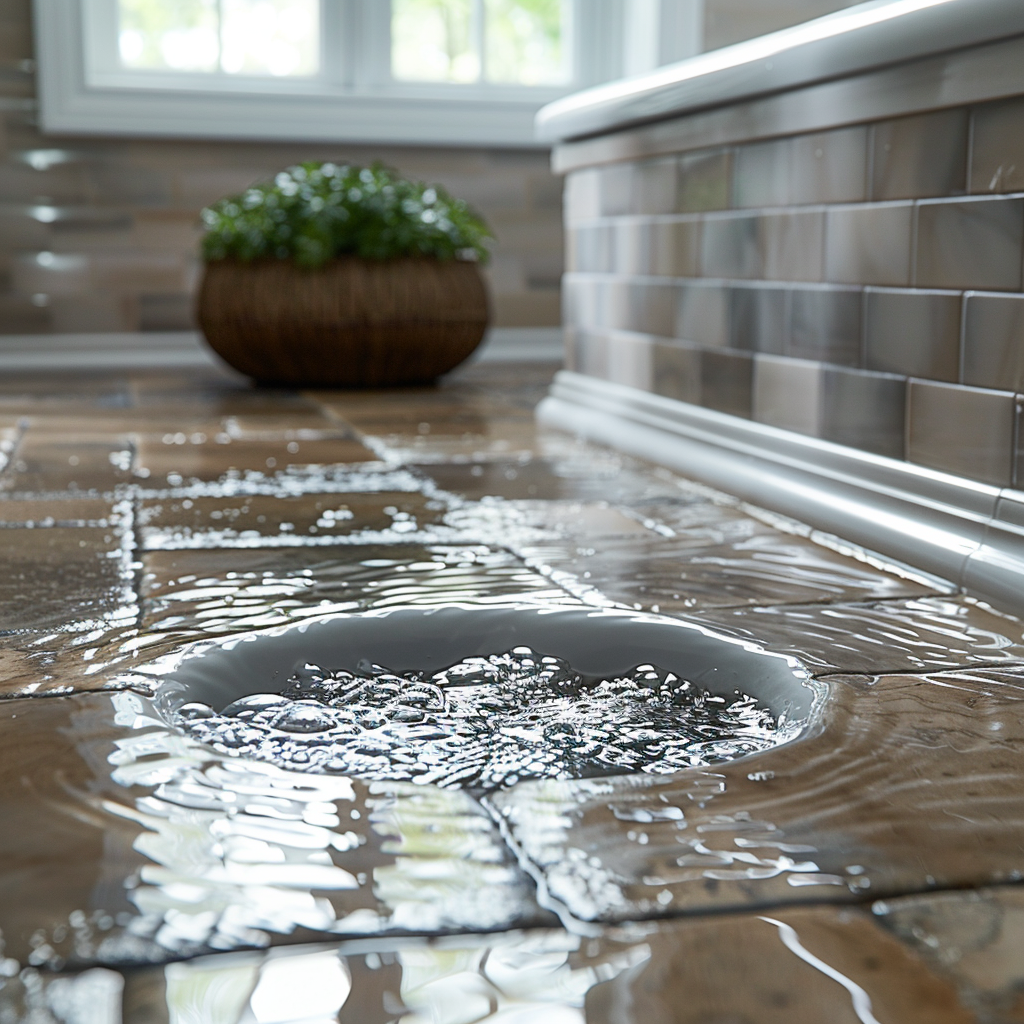
If you’ve got a whiff of bad odor coming from your sewers, clogged or blocked pipes might be the problem. Pipes get choked up by stuff like hair, oil buildup, or different kinds of muck over time. These clogs can slow down your drain’s flow and stink up the place. To avoid this mess, it’s a good idea to keep those drains clean. A plunger or a plumber’s snake should do the trick most times. For tough blockages, you might think about using chemical drain openers – just be careful though, as they might harm your pipes if you overdo it.
Fixing Water Traps
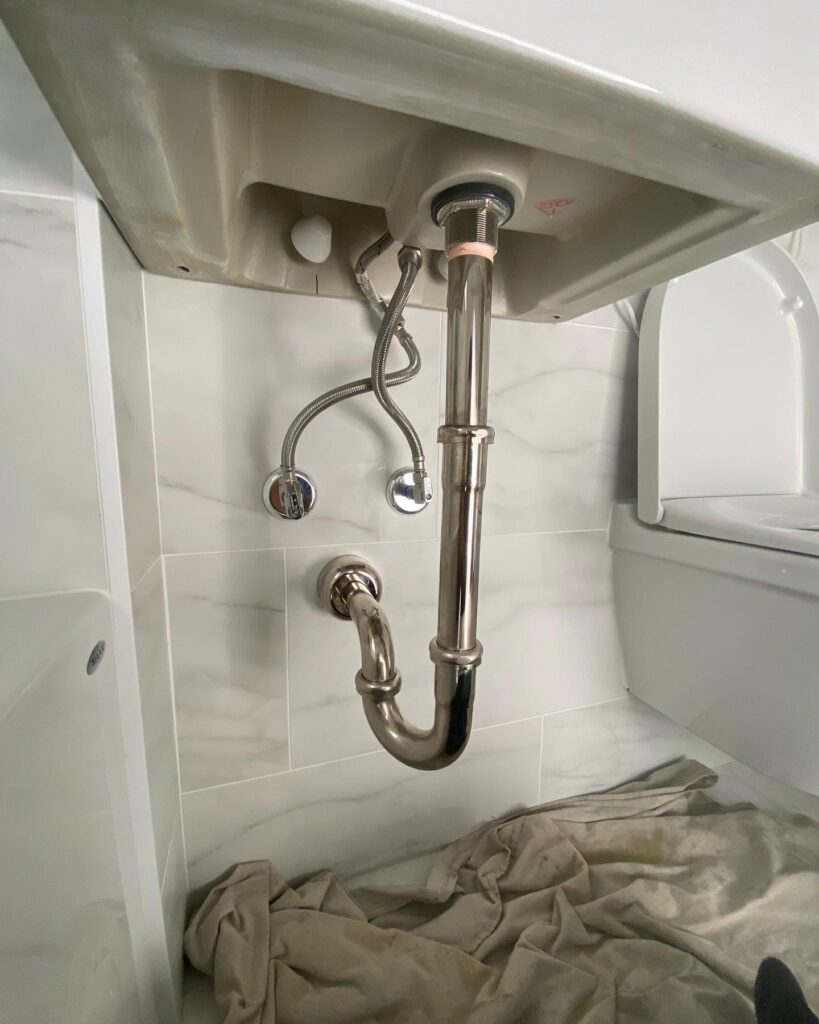
Keeping water traps in good shape is key to stopping bad smells from sewers. Every sink has a trap, that’s shaped like a P, that keeps water in it to block sewer gases from getting into your house. Sometimes they dry up or don’t work well, and you might start to smell something funky. Make sure you run water down all your drains now and then to keep those traps full. For drains you don’t use much, it’s a smart move to pour some mineral oil down there. It’ll keep the water from evaporating too fast.
Fixing or Changing Toilet Seals
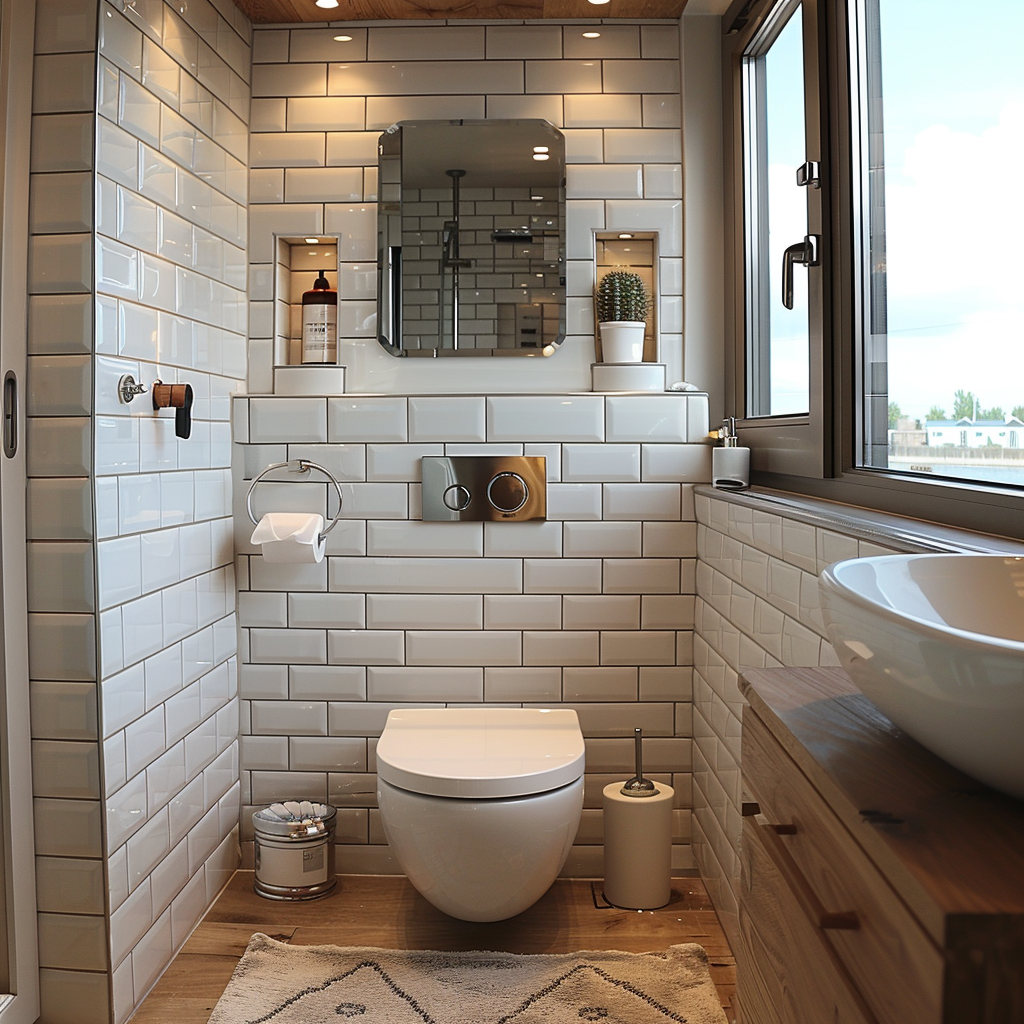
A broken toilet seal can sneakily cause bad smells from the sewer to come into your home. This seal stops gases in the sewers from leaking out by connecting the toilet’s bottom to the floor. If this wax ring or seal gets damaged, leaks can happen and stinky smells might find their way out. Look for wet spots near the base of your toilet – if you see one, that could mean the seal’s giving up. You can generally handle swapping out a bad seal yourself, unless plumbing isn’t really your thing, then maybe call in an expert.
Facing Issues with Air Flow
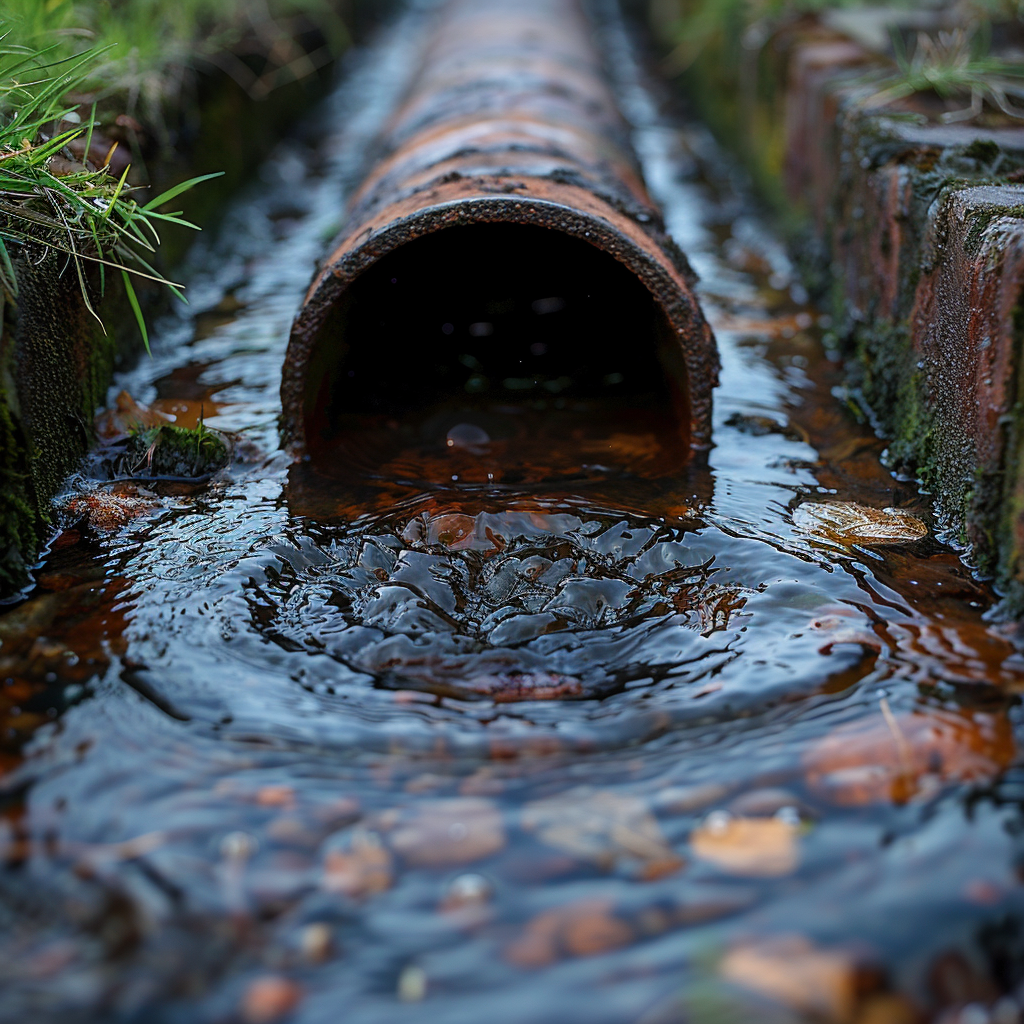
Good airflow is essential for preventing smells from the sewer in houses. Vent pipes are meant to send these gases outside, not inside your place. But, blocked or wrongly fitted vents mean bad smells may fill your rooms.
Watch for things like rubbish or bird nests blocking your roof vents. Also, when it’s cold, look out for ice or snow blockages. If you think the vents aren’t built right, get a pro plumber to check it’s up to code and working well.
Keeping Up with Upkeep
Sticking to a regular plan for looking after your sewer system stops bad smells from getting into your house. Have your pipes checked and cleaned often to spot problems early. These inspections help keep pipes free from blockages and wear that can cause stinky smells.
Throwing Waste Away Correctly
To prevent jams that bring sewer smells, think about what you’re putting down sinks and toilets. Stuff like kitchen oil, wet wipes, and things that don’t break down easily can block the system and make your home stink. Get rid of this waste the right way to keep your place smelling nice.
Adding Check Valves
Putting in check valves in your plumbing system can protect against sewage coming back into your home. They work by only letting waste go one way—away from your home, which helps stop bad smells and sewer gases from getting in.
Thoughts for Building New Homes
When building a new home or redoing your plumbing, planning to avoid smells is important. This might mean making sure vents are in the right spots, traps are set up correctly, and the layout of your plumbing is good for air moving through and stopping smelly problems from happening.
Understanding Sewer Odors in Your Home
Sewer odors in your home can do more than just stink; they may point to an actual issue with your pipes. When you smell something bad, it might be because stuff like trapped hair or soap scum is rotting away in your drains. Sometimes, it’s because harmful sewer gases are getting out and into your home.
This problem isn’t only awful for your sense of smell – it could be a health hazard too. Breathing in these smells regularly might lead to headaches, feeling sick, or even getting dizzy. It also means things like hydrogen sulfide and methane, which are dangerous gases found in sewer gas, could be floating around where you live.
Glossary of Terms
Here’s some terms you’ll wanna know about those sewer smells so you get the gist of things:
- Drain Trap: This U-shaped pipe holds water to block sewer gases from coming inside.
- Vent Stack: It’s a tall pipe that lets sewer gases go outside instead of inside your place.
- Sewer Gas: Yucky gases that come from decomposing waste from your house, including real stinkers like hydrogen sulfide and methane.
- Backdrafting: A risky situation when low pressure sucks sewer gas back into your home when it should be venting outside.
Resources for Homeowners
If you can’t shake off that constant sewer smell, here’s who can help:
- Plumbing Professionals: Those are the folks who can check out, figure out, and fix problems with your drains and vents.
- Home Improvement Stores: Got a DIY itch? These stores have all the tools and stuff you might need.
- Online Forums and Guides: Places on the web where you can find other people talking ’bout how to handle bad smells from sewers.
Checklist for Home Odor Prevention
To keep your home smelling clean, follow this handy list:
- Clean out your drains often so they won’t get clogged up.
- Make sure toilets and floor drains are sealed tight to keep gases where they belong.
- Put in good fans and vents in bathrooms and kitchens for fresh air.
- If the stink is still around, call a pro to take a look.
Fixing up foul odors isn’t just ’cause you want your place to smell nice; it’s pretty important for staying healthy too. Sorting out the plumbing troubles that cause those smells is better than waiting for them to turn into a full-blown mess.
Frequently Asked Questions (FAQ)
Why might a long-lasting sewer gas smell become noticeable in my home?
A persistent sewer gas smell can result from a blend of household chemicals, bacteria decomposition, or a clog in your drains causing an accumulation of methane. This issue often indicates a malfunction within the plumbing system, such as a dry P-trap, vent pipe blockages, or leaks.
What could be the reason behind sewer odor specifically emanating from my shower drain?
The stench from your shower drain could be due to Shower clogs from hair or soap scum that trap sewer gases. Alternatively, the water seal designed to keep out sewer gases may have evaporated, allowing the odor back into your living space.
How do vent pipes affect the presence of sewer gas smells in my house?
Vent pipes are meant to channel sewer gases safely out of your property. If they’re blocked or damaged, these gases can’t escape and thus seep back into your home through drains and fixtures, causing an unpleasant odor.
If there’s an egg smell in my bathroom, does it indicate a sewer gas problem?
An egg odor in your bathroom is typically caused by hydrogen sulfide, a compound found in human waste and a primary component of sewer gas. This scent suggests you might have a sewage problem that needs immediate attention.
Could the toilet be the source of sewer gas smell in my house?
Yes, a malfunctioning toilet—due to loose seals or cracks in the bowl—can lead to sewer gas escaping into your home. It’s essential to check for damage and fix it to prevent health hazards.
What role does a P-trap play in preventing a sewage smell in homes?
The P-trap is a water barrier in your pipes intended to block sewer odors from rising into your house. If this trap dries out or has leaks, it cannot perform its duty, allowing a sewage smell to permeate your home.
When there's a stench only when I use the washing machine, could it signify a sewer gas issue?
If you notice a stench when using your washing machine, it could point to a drainage issue or a clog in the standpipe. These problems allow for the buildup and emission of sewer gases into your home.
Why does my garage drain emit a sewage odor even if it's seldom used?
Infrequent use of garage drains often leads to dry P-traps. Without standing water to create an odor seal, sewer gases have no barrier to prevent them from entering your home.
Should floor drains throughout my house also be checked for possible sewer gas smells?
Absolutely. Floor drains also require water in their P-traps to stop sewer gases from entering homes. Regularly checking and maintaining these traps is important, particularly for those drains that are not frequently used.
Can improperly functioning sump pumps contribute to the occurrence of sewer gas smells indoors?
Yes, if the sump pump is not sealing correctly or if there are cracks in the basin, sewer gases might bypass the water seal and enter your living space, contributing to the overall odor issue.

I’m Tim Robberts, a seasoned wastewater treatment & septic system expert with over 40 years of experience in the field. My career began as a septic tank installer, and I quickly gained a reputation for my attention to detail and commitment to excellence. Over the years, I’ve honed my skills in designing, installing, and maintaining septic systems for residential and commercial properties.
